
Molecular Cancer
Scope & Guideline
Championing high-quality research for impactful outcomes.
Introduction
Aims and Scopes
- Molecular Mechanisms of Cancer:
The journal explores the intricate molecular pathways that contribute to cancer development, progression, and metastasis, including genetic mutations, epigenetic modifications, and signaling pathways. - Cancer Immunology and Immunotherapy:
A significant focus is on the immune system's role in cancer, including the mechanisms of immune evasion by tumors and the development of innovative immunotherapeutic strategies. - Non-coding RNAs and Circular RNAs:
Research on non-coding RNAs, particularly circular RNAs, is a core area, examining their roles in gene regulation, tumor progression, and potential as therapeutic targets. - Tumor Microenvironment and Metabolism:
The journal investigates the relationship between tumor cells and their microenvironment, including the metabolic reprogramming of cancer cells and the influence of stromal components on tumor behavior. - Liquid Biopsy and Biomarkers:
There is a strong emphasis on the development and validation of biomarkers for cancer diagnosis, prognosis, and treatment response, particularly through liquid biopsy technologies. - Targeted and Personalized Therapies:
Research on targeted therapies, including small molecules and biologics, is prevalent, focusing on identifying actionable mutations and developing personalized treatment approaches. - Translational and Clinical Research:
The journal aims to bridge basic research with clinical applications, promoting studies that translate laboratory findings into therapeutic strategies for cancer patients.
Trending and Emerging
- Circular RNAs and Their Therapeutic Potential:
Research on circular RNAs has surged, exploring their mechanisms in cancer biology and their potential as therapeutic targets and biomarkers. - Multi-Omics Approaches:
There is a growing trend towards integrating multi-omics analyses (genomics, transcriptomics, proteomics) to better understand cancer heterogeneity and inform personalized therapies. - Cancer Immunometabolism:
The intersection of cancer metabolism and immunology is gaining traction, with studies focusing on how metabolic pathways influence immune responses in the tumor microenvironment. - CRISPR and Gene Editing Technologies:
The application of CRISPR and other gene editing technologies in cancer research is rapidly expanding, focusing on their potential to create novel therapies and understand gene function in cancer. - Liquid Biopsy Innovations:
Innovative approaches to liquid biopsy are emerging, with research targeting circulating tumor DNA and exosomal RNA as non-invasive methods for cancer detection and monitoring. - Targeting the Tumor Microenvironment:
There is an increasing emphasis on understanding and targeting the tumor microenvironment, particularly the roles of cancer-associated fibroblasts and immune cells in tumor progression and therapy resistance. - Combination Therapies and Personalized Medicine:
Research is increasingly focused on combination therapies that leverage advances in genomics and immunotherapy, aiming for personalized treatment strategies that improve patient outcomes.
Declining or Waning
- Traditional Chemotherapy Mechanisms:
There has been a noticeable decrease in publications focusing solely on traditional chemotherapy mechanisms, as the field shifts towards exploring combination therapies and personalized approaches. - Basic Cancer Genetics without Functional Insights:
Research that merely catalogs genetic mutations in cancers without functional validation or therapeutic implications is less frequently seen, as the emphasis has shifted to understanding the functional consequences of these mutations. - In vitro Studies with Limited Clinical Relevance:
Studies that focus solely on in vitro models without robust links to clinical outcomes or translational potential are becoming less prevalent, as researchers prioritize more clinically relevant models. - Single-Target Therapies:
Interest in single-target therapies has waned, with a growing focus on combination therapies and multi-target strategies that address the complexity of cancer biology. - Historical Cancer Treatments:
Research centered on older treatment modalities without novel insights or improvements has decreased, as the field moves towards innovative therapies and precision medicine.
Similar Journals

Advances in Cancer Biology-Metastasis
Connecting Research to Real-World Impact.Advances in Cancer Biology-Metastasis is an emerging journal published by Elsevier, aimed at advancing our understanding of the complexities of cancer biology, with a specific focus on the mechanisms and pathways related to metastasis. With an E-ISSN of 2667-3940, this journal offers a platform for researchers, professionals, and students in the fields of Cancer Research and Cell Biology to disseminate innovative findings and discuss novel therapeutic approaches. Though currently classified in the Q4 quartile across both Cancer Research and Cell Biology categories, the journal aspires to enhance its impact through rigorous peer review and high-quality publication. Positioned to cover the years from 2021 to 2024, it seeks to bridge gaps in foundational knowledge and promote collaborative research efforts that could pivot the current understanding of cancer metastasis. Researchers are encouraged to take advantage of this platform to advocate for advancements in cancer biology, making significant contributions that can influence both academic and clinical practices.
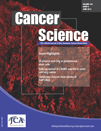
CANCER SCIENCE
Exploring the forefront of cancer science and medicine.Cancer Science, an esteemed journal published by Wiley, stands at the forefront of oncology research, boasting an impressive impact factor and a classification in the Q1 category for its contributions in Cancer Research, Medicine, and Oncology as of 2023. Since its inception in 2003 and transitioning to an Open Access model in 2014, the journal has facilitated global dissemination of critical research findings, ensuring that vital information remains accessible to researchers, clinicians, and students alike. With its comprehensive scope covering cutting-edge discoveries in cancer biochemistry, genetics, and molecular biology, Cancer Science is recognized for its rigorous peer-review process and significant contributions to advancing our understanding of cancer. The journal, located at 111 River St, Hoboken, NJ, is an essential resource for anyone dedicated to improving treatment outcomes and pushing the boundaries of cancer research.
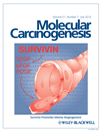
MOLECULAR CARCINOGENESIS
Exploring the Frontiers of Cancer ResearchMOLECULAR CARCINOGENESIS is a prestigious academic journal published by Wiley, dedicated to advancing the understanding of the molecular basis of cancer. Established in 1988, this journal serves as a vital resource for researchers and professionals in the fields of cancer research and molecular biology. With an impressive impact factor reflecting its significance in the Q2 category for both Cancer Research and Molecular Biology, it stands out for its high-quality, peer-reviewed articles that explore innovative research, novel findings, and emerging trends in carcinogenesis. Although the journal currently does not offer open access options, it remains accessible to the academic community through numerous institutional subscriptions. Positioned in the United States and contributing to the global discourse on cancer research, MOLECULAR CARCINOGENESIS is an essential publication for anyone engaged in the study of cancer at the molecular level.

Journal of Hematology & Oncology
Elevating Knowledge in Cancer and Hematological StudiesJournal of Hematology & Oncology, published by BMC, is a leading open-access journal dedicated to the dynamic fields of hematology and oncology, with a continuous publication record since 2008. Based in the United Kingdom, this prestigious journal provides a platform for groundbreaking research, encompassing topics that span cancer research, hematological disorders, and molecular biology. With a remarkable Q1 ranking in multiple categories including Cancer Research, Hematology, Molecular Biology, and Oncology for 2023, it stands as a significant contributor to the scientific community. The journal's rigorous peer-review process ensures the dissemination of high-quality studies that drive advancements in these critical areas of medicine, boasting an impressive Scopus rank in the top echelons of its fields. As an open-access publication, it promotes widespread accessibility and sharing of knowledge, making it an indispensable resource for researchers, clinicians, and students striving to make advancements in understanding and treating hematological and oncological diseases.
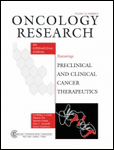
ONCOLOGY RESEARCH
Fostering Excellence in Oncology Research and PracticeONCOLOGY RESEARCH, published by TECH SCIENCE PRESS, is a vital academic journal dedicated to the rapidly evolving field of oncology. With its ISSN 0965-0407 and E-ISSN 1555-3906, the journal serves as a key resource for researchers, clinicians, and academicians committed to advancing cancer research and treatment strategies. Operating without an Open Access model, ONCOLOGY RESEARCH provides high-quality, peer-reviewed articles that cover diverse topics within cancer research, medicine, and oncology, with its 2023 Scopus ranking placing it in the Q3 quartile. The journal's commitment to facilitating rigorous scientific discourse is evident in its historical breadth, with a publishing history dating back to 1992. ONCOLOGY RESEARCH is not only significant for the academic community but also plays a critical role in fostering new insights and approaches in the fight against cancer, making it a must-read for those involved in this critical area of study.

Molecular & Cellular Oncology
Unraveling the complexities of cancer biology.Molecular & Cellular Oncology, published by Taylor & Francis Inc, is a vital academic journal dedicated to the exploration of cancer biology through the lens of molecular and cellular mechanisms. Since its inception in 2014, the journal has played a crucial role in disseminating innovative research findings that address the fundamental aspects of cancer research and molecular medicine. With its current ranking in Scopus placing it in the Q3 quartile for both Cancer Research and Molecular Medicine, the journal provides a platform for groundbreaking studies that push the boundaries of our understanding of oncogenesis and therapeutic interventions. Although the journal operates under a subscription model, its dedication to high-quality peer-reviewed research makes it an essential resource for researchers, professionals, and students aiming to contribute to or stay updated in the rapidly evolving field of oncology. As we approach the culmination of its converged years in 2024, Molecular & Cellular Oncology aims to continue fostering collaborations and insights that advance cancer research on a global scale.
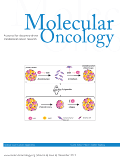
Molecular Oncology
Advancing the Frontiers of Cancer Research.Molecular Oncology, published by WILEY, is a premier open-access journal that has been at the forefront of cancer research since its inception in 2007. With an impressive impact factor reflective of its outstanding contribution to the field, it holds a prestigious position in the Q1 category across multiple disciplines, including Cancer Research, Genetics, and Molecular Medicine. This journal is essential for researchers and professionals seeking to publish high-quality findings in a rapidly evolving area of study, underscored by its significant Scopus rankings that place it within the top percentiles of Oncology and Molecular Biology. As an open-access journal since 2017, it ensures that vital research is readily available to a global audience, thereby facilitating collaboration and knowledge dissemination among academic and clinical communities. With its commitment to innovative and impactful research, Molecular Oncology continues to be a critical resource for advancing our understanding of cancer biology and treatment.
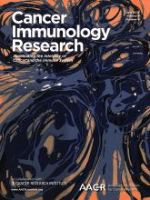
Cancer Immunology Research
Unraveling the Immune Response in CancerCancer Immunology Research is a leading journal dedicated to the rapidly evolving field of cancer immunology, published by the American Association for Cancer Research. Established in 2013, this prestigious journal has quickly made a significant impact in its domain, achieving a 2023 Q1 ranking in both Cancer Research and Immunology. With an impressive Scopus rank of 24 out of 230 in cancer research and 28 out of 236 in immunology, it occupies a valuable position for researchers, professionals, and students engaged in cutting-edge cancer studies. Although it does not offer open access, the journal is committed to disseminating high-quality, peer-reviewed research that advances our understanding of the immune system’s role in cancer. The journal's objectives include fostering innovative studies, enhancing collaboration across disciplines, and promoting the translation of research findings into clinical applications, making it a vital resource for anyone invested in cancer therapy and immunological research.

Cancer Cell International
Transforming Knowledge into Cancer SolutionsCancer Cell International, published by BMC, is a transformative open-access journal established in 2001, dedicated to advancing the field of oncology and cancer research. With its ISSN number not specified and an E-ISSN of 1475-2867, the journal proudly operates from the United Kingdom, located at CAMPUS, 4 Crinan St, London N1 9XW, England. Renowned for its rigorous peer-review process, Cancer Cell International has made significant strides, securing a Q2 ranking in Cancer Research and Q1 rankings in both Genetics and Oncology as of 2023. It ranks impressively in Scopus, featuring in the top quintile of Genetics (#37/347) and Oncology (#52/404), indicating its importance within the scientific community. The journal's broad scope caters to a diverse array of topics within cancer biology, making it an invaluable resource for researchers, professionals, and students seeking to stay at the forefront of cancer science. With a commitment to disseminating high-quality research, Cancer Cell International invites scholars to explore innovative findings and contribute to the collective effort of combating cancer.
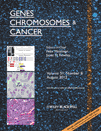
GENES CHROMOSOMES & CANCER
Innovating the Intersection of Genetics and Oncology.GENES CHROMOSOMES & CANCER, published by Wiley, is a premier journal in the intertwined fields of cancer research and genetics. With an ISSN of 1045-2257 and an e-ISSN of 1098-2264, this journal has been a significant outlet for innovative research since its inception in 1989, continuing through to 2024. Positioned in the Q2 quartile of both Cancer Research and Genetics categories in 2023, it reflects a strong impact in the scientific community, as evidenced by its Scopus rankings—99th in Genetics and 83rd in Cancer Research. Though it does not provide open access options, GENES CHROMOSOMES & CANCER offers valuable insights that foster collaboration and discovery among researchers, professionals, and students dedicated to understanding the genetic underpinnings of cancer. With its reputable standing, this journal is a vital resource for those aspiring to contribute meaningful advancements in cancer genetics and therapeutic interventions.